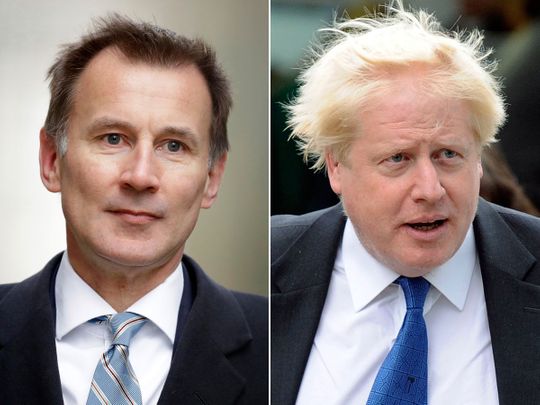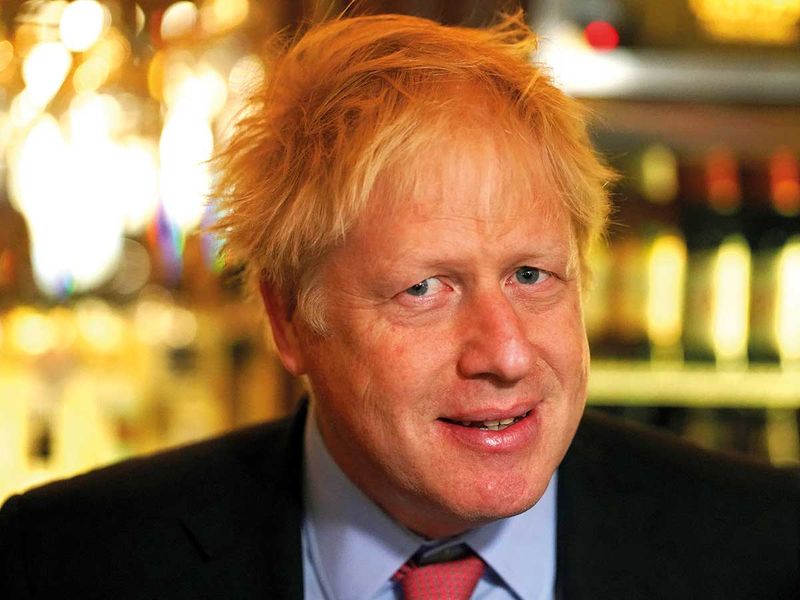
London: Congratulations, you're the next British prime minister. Now for the hard part.
Around midday Tuesday in London, Britain will learn the identity of its new leader, as the ruling Conservative Party announces the results of its internal contest.
Former Foreign Secretary Boris Johnson, the face of Brexit, is the heavy favorite to win. His opponent is current Foreign Secretary, Jeremy Hunt.

The winner will take over as prime minister from Theresa May on Wednesday afternoon. The biggest challenge he'll face, the issue that broke May and dominated the weeks-long leadership contest, is getting Britain out of the European Union.
Johnson has committed to doing this by Oct. 31, with or without a deal.

But Monday saw a reminder that a British prime minister never just has one thing on their plate.
There was the escalating crisis with Iran, and the question of how to secure communications infrastructure.
Then there were issues of party management, and the question of whether the Conservative leader is even entitled to be prime minister, as the party's majority shrank following the suspension of one of its members of Parliament over sex charges.
'State Piracy'
The most pressing is Iran.
Hunt, in his role as foreign secretary, on Monday set out a European plan to assemble a naval mission to provide safe passage for ships through the Persian Gulf.
That came after Iran seized a British oil tanker, the Stena Impero, in the region last week, an act that Hunt described as "state piracy."
Managing that crisis will mean dealing not just with EU leaders, but also with President Donald Trump.
At present, the UK is trying to keep its own efforts distinct from America's. Unlike the US, Britain still supports the Iranian nuclear deal that it helped to negotiate.
On telecoms, a decision on whether to use equipment from Huawei Technologies Co. is overdue, and was put off on Monday evening.
To use it risks upsetting the Trump administration, which has imposed a ban on the company. But not to could delay the roll-out of 5G mobile broadband in Britain by up to two years, hitting the economy.
The issue was so contentious within May's government that a leak about it led her to fire Defence Secretary Gavin Williamson in May.
'Dark Cloud'
With Johnson assumed to be the winner of the contest, Monday began with the resignation of a foreign minister, Alan Duncan, an outspoken critic of his former boss.
"It is tragic that just when we could have been the dominant intellectual and political force throughout Europe, and beyond, we have had to spend every day working beneath the dark cloud of Brexit," he said in his resignation letter.
Duncan will join other former ministers, including Chancellor of the Exchequer Philip Hammond, Justice Secretary David Gauke, and perhaps even May herself, who have little love for Johnson and have pledged to work to stop Britain leaving the EU without a deal.
Duncan later Monday floated the question of whether Johnson would even be entitled to become prime minister. Constitutionally, a prime minister has to command the support of the House of Commons to assume the role. Duncan wanted a vote to test this, but he was refused by Speaker of the House of Commons John Bercow.
A reminder of how very tight that question is for any Conservative prime minister at the moment came later Monday when prosecutors announced they'd charged Tory MP Charlie Elphicke with three counts of sexual assault, which he denies.
Elphicke was suspended from the Conservative Party, technically reducing the government's majority in Parliament to just two — though in reality Elphicke is likely to continue to voting with the Conservatives.
It's not only Johnson for whom Conservative Party management will be difficult.
If Hunt manages to win, he will quickly find himself in trouble with the Conservative MPs who want a no-deal Brexit, and supported Johnson. Though if Johnson compromises too much with the EU, he could well have the same problem.








